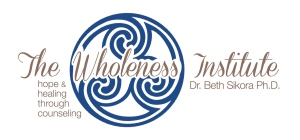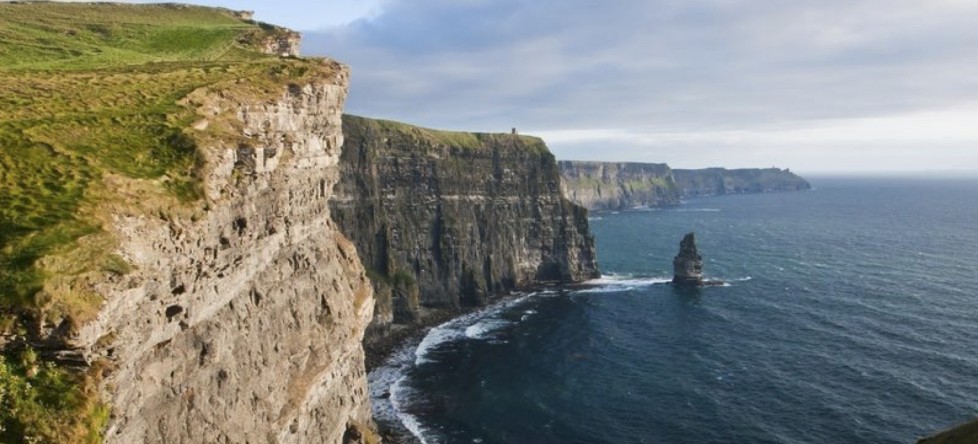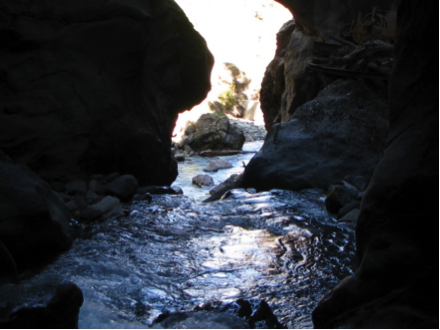Lenten season is upon us once again and as we have begun, I’ve noticed a similar theme crop up in a couple of places and it’s had me thinking, how is my relationship with God at the moment? Am I letting Him in, and growing? Or am I going through my busy life with time only for church on Sunday and prayers for sick ones, people I’m concerned for, guidance for myself? That type of superficial relationship is not what fills me up the best. Am I listening to Him? Are you?
The first quote that resonated with me was posted on social media by a friend:
When I was younger, I thought Lent was about giving up something I liked and that was it.
As I’ve grown older, I pray now, “Jesus, what’s keeping me from you?” Usually, I already know the answer. It’s usually the one thing, action, or thought I don’t want to give up.
But every time I do give something up, or take on something else, allowing and inviting Jesus the time and space to change me, I’ve grown in love and sacrifice. “He loved His own in the world, and He loved them to the end.” -John 13:1
He’s longing to love you this Lent.
He’s longing to lead you deeper this Lent.
He’s longing to call you this Lent.
What’s keeping you from Him?
Her comments really hit home and challenged me to look at my life and how I could improve my relationship with God during this Lenten season. This led me to search a few other books, blogs, and videos highlighting Lent as well as my relationship with God. I found a wonderful video posted which focused on our relationship and how Lent can re-energize our relationship with God. You can see it at Lent , but be sure to listen to the entire thing or go to about the last minute and a half. As I’ve been mulling over these in the last 2 days another voice popped in from a popular blogger I follow, Emily of Jones Design Company. She writes:
In my lifetime of following Jesus, I can only count a few times when I know I’ve heard God speak to me. There are lots of times when He speaks through scripture, music, dreams, conversations or nature. I adore these special moments of closeness and connection.
This time was different.
It wasn’t a conversation or an affirmation. It wasn’t even in response to something I had been talking with Him about. It was a catch-you-off-guard, clear as day directive.
It’s time to write.
I stopped mid-tread, listened, and agreed.
The first two encounters above made me truly consider what is keeping me from allowing me to be closer to my God. Not just through my actions showing my belief; but also knowing more about Him/Her and especially trusting and allowing Him to really know me. Offering up the openness in myself to really allow Him to enrich my life and grow in my spirituality, healing; and, in turn, in my own loving, supporting, and giving to others. When I read Emily’s quote it made me wonder whether I’m spending the time to really listen for God, for His word, or for what I’m to learn through different experiences. In other words, am I responding to my God when He/She is calling me to love me and be with and in relationship. The question is really one of whether I am allowing intimacy, or deeper intimacy, with God.
What is intimacy with God? I believe time spent with and quality of that time together with the other(s) are always signs of intimacy in human relationships. Is this really any different that with God? I don’t think so. And in reviewing what others have said I found these additionally:
- There’s an excellent article titled, “5 Ways to Improve Your Relationship with God“, and one suggestion is to “Abide and Meditate”. This means finding some time for silence each day. Set a time in your schedule–while you have your morning coffee, just before you go to sleep, or sometime in between–that you turn off your devices, pick up the word of God and really read it and ponder it. Maybe a verse, maybe a chapter, maybe a book. Meditate on what you’ve read and really internalize the meaning.
2. One of my favorite authors is Thomas Keating, OCSO, a Franciscan priest who truly gave us all a gift when he was shared how Centering Prayer can allow us to enter a more intimate, and deep, relationship with God through Centering Prayer. As he said: “As we move from conversation to communion with God’s human and divine nature, Christ, we experience the divine intimacy. ” (You can read more about this form of prayer at Centering Prayer).
3. The closeness so evident that God hears us before we even turn to Him or know what we need: “Before they call I will answer; while they are yet speaking I will hear” (Isaiah 65:24).
So now I believe some are asking, what does faith have to do with my psychological functioning? I’m going to take a risk here and say, it has everything to do with our functioning in life emotionally. When I presented a workshop last year the intersection between the two was clear, it allows us to be whole people.

If we look at this, we notice that the first item is related to intimacy and authenticity in our relationships. Thus as we have a lived sense of spirituality, and this means a healthy spiritual practice, then we will experience more intimacy with others as well. In Lent, a major focus is that of developing our relationships with God and others. Any tradition can borrow from this, and take on a period of 40 days to focus on our Higher Power, our God. Colleen’s post indicated that her deeper question for this period this year is what is keeping her from accepting God’s love and being more deeply in a relationship with God. My suggestion for each and every one of you is to ask yourself:
- What is keeping me from a deeper relationship in my spiritual life? Is it laziness, or is it fear, or is it a lack of awareness of relationship and has become more rote practice? Or, is it _________________________? Fill in your own blank.
- What is one step that I can take during this time to grow psychologically and spiritually? Do I need to spend more time with God in a way that is meaningful to me on a regular basis? I am committing to go to some Taize prayer services (see Taize Prayer for an idea about these services if you’re interested). For some this will be through nature. I loved Episcopal Bishop Kirk Smith’s e-Pistle where he recently wrote about nature and God. In it he was discussing Richard Rohr’s quote: “Ever since God created the world, God’s everlasting power and deity–however invisible–have been there for the mind to see in the things God has made” as well as Thomas Acquinas’ quote: “Sacred writings are bound in two volumes–that of creation and that of Holy Scripture.” So perhaps this can be a way to come closer to your Higher Power, your God, this season. Or, perhaps it needs to be in centering prayer as I mentioned above. Or, for does it need to be through gratitude? This is in part the recognition that your Higher Power is at your side even during the times of difficulty. Whether all is well in life at present or you have challenges you’re facing, God’s plan is in place. Thus focusing on recalling the moments where you have been blessed and offer up thanks. Again, fill in your own blank here: The step I will take this Lent to inspire my relationship with God is to ____________________________________.
- Am I an active participant in my relationship to God or within my spiritual walk? Many have written about this and how to be more active. Perhaps read “A Praying Life” by Paul Miller that focuses on how to live in this busy world we have and yet still stay connected with God. Or, perhaps taking the 7 steps each day that Joyce Rupp talks about, see 7 Steps of Morning . Maybe it will be watching movies that lead you to deeper awareness of how to be more connected spiritually, like Walking the Camino or The Shack. Or perhaps looking to music to inspire your spiritual participation with God. Never tried listening to chants? Or what about Tibetan bowls? Or perhaps gospel music is more your speed, but with an Elvis twist: Lead Me Guide Me For me, a beautiful classic piece can do it, as can Every Grain of Sand by Bob Dylan and sung by Emmylou Harris at Every Grain of Sand .Get creative – how can you experience, try new activities to express your feelings or thoughts in relationship with God or in a spiritual manner. So, answer this question: I will try a new spiritual practice to become more aware of my participation in relationship to God by ____________________________.
You now have three steps you can take this Lent. Are you going to use this Lenten season as I am, to delve deeper into your relationship with God? Some focused effort in these coming weeks may really deepen your faith and bring you greater peace. Will you join me?




















